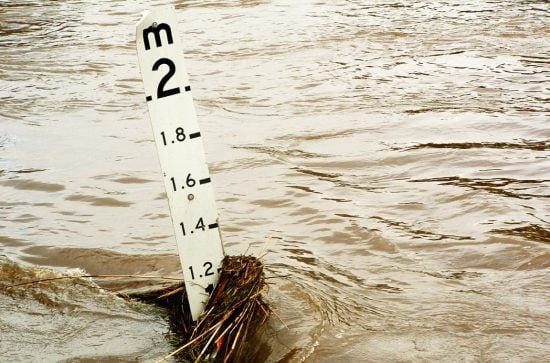
Human-induced climate change made the extreme two-day rainfall event associated with flooding in Midleton, Co. Cork last October “more likely and more intense”, according to a new study involving researchers from the ICARUS Climate Research Centre in Maynooth University.
The study, which involved ICARUS along with the World Weather Attribution (WWA) team based in Imperial College London and Met Eireann and was carried out for RTÉ, found that the extreme rainfall that occurred over two days on 17-18 October had “an increased intensity of around 13% due to global warming”.
It led to significant flooding, with the town of Midleton severely impacted, as the rain fell on soils already saturated by over three months of above-average rainfall that started with the wettest July on record nationally.
The study, a climate attribution analysis, is the first of its kind in Ireland. It found that such changes are likely to continue with further warming and noted that there would be “considerable value in investing in and sustaining a national operational event attribution capability for Ireland. This study has served as a case study of how such a service could be undertaken and add value to national policy making and planning moving forwards.”
The study involved researchers from the WWA which was formed in 2015 and has performed more than 50 attribution studies on heatwaves, extreme rainfall, drought, floods, wildfires and cold spells around the world. It uses weather observations and climate models to understand how climate change influences the intensity and likelihood of extreme weather events. Most studies are performed rapidly, in the aftermath of extreme weather events – or even while they’re still happening – to answer the increasingly common question: ‘What was the role of climate change in this event?’
In the case of Midleton, the study found that peak river flows coincided with a spring low tide, meaning that the river was able to efficiently drain into the sea. “Had the event occurred at high tide and/or with substantial storm surge, flooding could have been much more extensive,” the report said, noting that despite suffering substantial damage, Midleton had “dodged a bullet”.
The flooding in Midleton claimed no lives but caused significant damage to property and infrastructure, impacting 681 properties including 395 residential dwellings and 286 commercial properties, many of which were not insured. According to Prof Peter Thorne of ICARUS one of the authors of the study, it was “blind luck that we avoided a worse catastrophe in this case. The ocean was Midleton’s very best friend on the day”.
But the report warned that with the town prone to both fluvial and storm surge-related flooding, the risk is that in future such events might coincide. “Fluvial and marine impacts may reinforce each other rather than partially cancel each other out as was likely the case in October 2023,” it said.
Looking ahead, the report authors say the study can now be used to stress test, and if necessary modify, the plans for the future Midleton relief scheme. It notes that the findings have relevance to at least Cork and likely broader parts of southern Ireland and can inform other planned flood protection schemes.
Aside from Prof Thorne, the ICARUS team involved in the study included Prof Conor Murphy, Dr Gerard McCarthy, Dr Paul O'Connor and Dr Emmanuel Eresanya from ICARUS as well as Dr Niamh Cahill of the Department of Mathematics and the Hamilton Institute.
